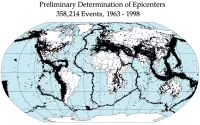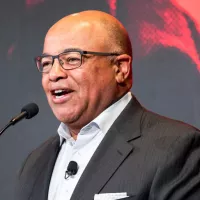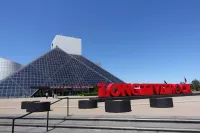Solomon Islands is an island country in Melanesia, Oceania, comprising six major islands and over 1000 smaller ones. Located northeast of Australia and west of Papua New Guinea, its capital and largest city is Honiara, situated on Guadalcanal. The country's name originates from the larger Solomon Islands archipelago, which includes Bougainville but excludes the Santa Cruz Islands. The Solomons cover a total area of 28,896 square kilometers and have an estimated population of 734,887 as of mid-2023.
1902: Limited European Colonist Presence
By 1902, there were only about 80 European colonists residing on the Solomon Islands despite British colonial government attempts to encourage the establishment of plantations.
1927: Murder of William R. Bell
In 1927, colonial administrator William R. Bell was murdered by Basiana of the Kwaio people on Malaita for attempting to enforce an unpopular head tax.
1941: War Declared Between Japan and Allied Powers
In 1941, following the Japanese attack on Pearl Harbor, war was declared between Japan and the Allied Powers.
May 1942: Japanese Invasion of Tulagi and Western Solomon Islands
In May 1942, the Japanese launched Operation Mo, occupying Tulagi and most of the western Solomon Islands, including Guadalcanal, where they began work on an airstrip.
August 1942: Allies Counter-Invade Guadalcanal
In August 1942, the Allies counter-invaded Guadalcanal, marking a turning point in the Pacific War.
1943: Foundation of the Maasina Rule Movement
In 1943, Aliki Nono'ohimae founded the Maasina Rule movement to improve the economic well-being of native Solomon Islanders and gain greater autonomy.
1943: New Georgia Campaign
In 1943, the Allies launched the New Georgia campaign, further countering the Japanese advance in the Pacific War.
1947: "Operation De-Louse" Launched
In 1947, alarmed by the growth of the Maasina Rule movement, the British launched "Operation De-Louse" and arrested most of its leaders.
1950: Arrival of Henry Gregory-Smith
In 1950, Henry Gregory-Smith arrived as the new Resident Commissioner and released the leaders of the Maasina Rule movement.
1952: Capital Shifts to Honiara
In 1952, the capital of Solomon Islands shifted from Tulagi to Honiara, following extensive development by the Americans during World War II.
1960: Establishment of Executive and Legislative Councils
In 1960, Appointed Executive and Legislative Councils were established, beginning the process of decolonization.
1964: Introduction of Elected Representation
In 1964, a degree of elected Solomon Islander representation was introduced.
1967: Extension of Elected Representation
In 1967, elected Solomon Islander representation was extended.
1969: First International Rugby Match
The Solomon Islands national rugby union team has played internationals since 1969.
1970: New Constitution Created
In 1970, a new constitution was drawn up which merged the two Councils into one Governing Council, though the British Governor still retained extensive powers.
1974: New Constitution Reduces Governor's Powers
In 1974, a new constitution was created which reduced much of the Governor's remaining powers and created the post of Chief Minister, first held by Solomon Mamaloni.
1975: Name Changed to "The Solomon Islands"
In 1975, the official name of the British administration was changed from "British Solomon Islands Protectorate" to "The Solomon Islands".
1976: Full Self-Government Achieved
In 1976, full self-government for the territory was achieved.
1977: Agreement for Full Independence
In 1977, a conference in London agreed that the Solomons would gain full independence the following year.
1977: Introduction of the Solomon Islands Dollar
In 1977, the Solomon Islands dollar (SBD) was introduced, replacing the Australian dollar at par.
July 1978: Independence Granted
On July 7, 1978, under the terms of the Solomon Islands Act 1978, the country was annexed to Her Majesty's dominions and granted independence. Sir Peter Kenilorea became the first prime minister and Elizabeth II became Queen of Solomon Islands.
1978: Independence Achieved
In 1978, Solomon Islands obtained independence and became a constitutional monarchy, with the name changed to just "Solomon Islands".
1978: Name changed to "Solomon Islands"
In 1978, at independence, the official name of the territory became "Solomon Islands" as defined in the Constitution of Solomon Islands.
1980: Kenilorea Wins Election
Peter Kenilorea won the 1980 Solomon Islands general election, becoming Prime Minister.
1981: Mamaloni Becomes Prime Minister
In 1981, Peter Kenilorea was replaced by Solomon Mamaloni of the People's Alliance Party (PAP) as Prime Minister after a no confidence vote.
1982: First Reported Dengue Fever Case
Dengue fever was first reported in Honiara, Solomon Islands, in 1982.
1984: Kenilorea Returns to Power
In 1984, Kenilorea returned to power after winning the election.
1986: Founding of Melanesian Spearhead Group
In 1986, the Solomon Islands helped found the Melanesian Spearhead Group, aimed at fostering cooperation and trade in the region.
1988: Bougainville Conflict Effects
In 1988, the conflict in neighboring Bougainville broke out, causing many refugees to flee to the Solomons and creating tensions with Papua New Guinea.
1989: Mamaloni Returns to Power
In 1989, Mamaloni and the PAP returned to power after winning the election.
1990: Gross Primary School Enrolment
In 1990, the percentage of the government's budget allocated to education was 13.2 percent and the gross primary school enrolment was 84.5 percent.
1993: Mamaloni Loses Election to Billy Hilly
In 1993, Mamaloni lost the election to Billy Hilly, leading to a change in government.
1994: Gross Primary School Enrolment
From 1990 to 1994, the gross primary school enrolment rose from 84.5 percent to 96.6 percent.
1994: Mamaloni Returns to Power Again
In 1994, Mamaloni returned to power after Billy Hilly was sacked by the Governor-General.
1997: Ulufa'alu Becomes Prime Minister
In 1997, discontent caused Mamaloni to lose the election, and Bartholomew Ulufa'alu of the Solomon Islands Liberal Party became the new prime minister.
1998: Start of Gold Mining at Gold Ridge
In 1998, gold mining operations began at Gold Ridge on Guadalcanal.
1998: End of Bougainville Conflict
In 1998, the conflict in Bougainville ended, improving relations with Papua New Guinea.
1998: IFM Formed
In late 1998, the Isatabu Freedom Movement (IFM) was formed and began a campaign of intimidation and violence towards Malaitan settlers due to increasing tensions caused by migration.
1998: Government Budget Allocated to Education
The percentage of the government's budget allocated to education was 9.7 percent in 1998, down from 13.2 percent in 1990.
1998: Fall in Tropical Timber Prices
Until 1998, timber was Solomon Islands' main export product, but world prices for tropical timber fell steeply.
1999: Malaita Eagle Force Established
In mid-1999, the Malaita Eagle Force (MEF) was established to protect Malaitans on Guadalcanal following IFM's actions. In late 1999, Prime Minister Bartholomew Ulufa'alu declared a four-month state of emergency and requested assistance, which was rejected.
June 2000: Cessation of Palm Oil and Gold Exports
In June 2000, exports of palm oil and gold from Solomon Islands ceased, while timber exports also declined.
June 2000: Kidnapping and Resignation of Ulufa'alu
On 5 June 2000, Prime Minister Ulufa'alu was kidnapped by the MEF, who felt he wasn't protecting their interests. Ulufa'alu resigned in exchange for his release, and Manasseh Sogavare was elected as prime minister in his place.
October 2000: Townsville Peace Agreement
On 15 October 2000, the Townsville Peace Agreement was signed by the MEF, elements of the IFM, and the Solomon Islands Government, in an attempt to establish peace after conflict.
2000: Increase in Non-Piped Water Access
Between 2000 and 2010, the number of people in Solomon Islands living with non-piped water increased.
2000: Closure of Solomon Taiyo Ltd.
In mid-2000, Solomon Taiyo Ltd., a Japanese joint venture operating the only fish cannery in the country, closed due to ethnic disturbances.
February 2001: Marau Peace Agreement
In February 2001, the Marau Peace agreement was signed by the Marau Eagle Force, the IFM, the Guadalcanal Provincial Government, and the Solomon Islands Government. However, Harold Keke refused to sign the agreement.
December 2001: Kemakeza becomes Prime Minister
In December 2001, new elections brought Allan Kemakeza into the Prime Minister's chair, with the support of his People's Alliance Party and the Association of Independent Members, after the economy collapsed and the government was bankrupt.
2001: Primary School Attendance Rates Unavailable
As of 2001, primary school attendance rates were unavailable for the Solomon Islands.
December 2002: Australia provides assistance after Cyclone Zoe
Following Cyclone Zoe's strike on the islands of Tikopia and Anuta in December 2002, Australia provided the Solomon Islands government with SI$200,000 (A$50,000) for fuel and supplies for the patrol boat Lata to sail with relief supplies.
December 2002: Resignation of Finance Minister Laurie Chan
In December 2002, Finance Minister Laurie Chan resigned after being forced at gunpoint to sign a cheque made out to some of the militants, illustrating the lawlessness at the time.
2002: Government Insolvency
The Solomon Islands Government was insolvent by 2002.
April 2003: Killing of Melanesian Brotherhood members
In April 2003, seven Christians of the Melanesian Brotherhood, including Brother Robin Lindsay, were killed on the Weather Coast of Guadalcanal by rebel leader Harold Keke. The brothers had been searching for Brother Nathaniel, who had already been killed after being accused of being a government spy. He was reported to have died singing hymns.
July 2003: Arrival of RAMSI
In July 2003, Australian and Pacific Islands police and troops arrived in Solomon Islands under RAMSI, which led to improvements in the security situation. Violence decreased, and Harold Keke surrendered.
2003: RAMSI Intervention and Budget Recasting
Following the Regional Assistance Mission to Solomon Islands (RAMSI) intervention in 2003, the government recast its budget.
2003: Disbanding paramilitary elements of the Royal Solomon Islands Police Force
In 2003, the various paramilitary elements of the Royal Solomon Islands Police Force (RSIPF) were disbanded and disarmed following the intervention of the Regional Assistance Mission to Solomon Islands (RAMSI).
2003: Rugby World Cup Qualifying Tournament
The Solomon Islands national rugby union team took part in the Oceania qualifying tournament for the 2003 Rugby World Cup, but did not qualify.
2004: Marine Biodiversity Survey
In 2004, a baseline survey of marine biodiversity in the Solomon Islands found 474 species of corals, including nine potential new species. This places the Solomons second in coral diversity globally, after the Raja Ampat Islands in eastern Indonesia.
2004: Government Stops Live Dolphin Exports
In 2004, the Solomon Islands government initially stopped the export of live dolphins after controversy arose over a shipment of 28 dolphins to Mexico.
April 2006: Election and Rioting in Honiara
In April 2006, Kemakeza lost the election and Snyder Rini became PM. Allegations that Rini used bribes led to mass rioting in Honiara, targetting the city's Chinatown. China sent aircraft to evacuate Chinese citizens.
December 2006: Prevention of Australian police chief's return
On 27 December 2006, the Solomon Islands government took steps to prevent the country's Australian police chief from returning to the Pacific nation.
2006: World Cup Qualification
In 2006, the Solomon Islands became the first team to beat New Zealand in qualifying for a play-off spot against Australia for qualification to the World Cup. They were defeated 7–0 in Australia and 2–1 at home.
2006: Closure of Gold Ridge Mine
Negotiations are underway that may lead to the eventual reopening of the Gold Ridge mine that was closed after the riots in 2006.
January 2007: Australia replaces expelled diplomat
On 12 January 2007, Australia replaced its top diplomat expelled from Solomon Islands for political interference in a move aimed at easing a dispute between the two countries.
April 2007: Earthquake and Tsunami
On April 2, 2007, an earthquake of magnitude 8.1 struck near Honiara, followed by a tsunami that killed at least 52 people, destroyed over 900 homes, and left thousands homeless. The coastline of Ranongga island extended by up to 70 meters due to land upthrust.
December 2007: Sogavare toppled by vote of no confidence
On 13 December 2007, Prime Minister Manasseh Sogavare was toppled by a vote of no confidence in Parliament. On 20 December, the parliament elected Derek Sikua as prime minister.
2007: Sogavare removed and replaced by Sikua
In 2007, after one failed attempt, Prime Minister Sogavare was removed in a vote of no confidence and replaced by Derek Sikua of the Solomon Islands Liberal Party.
2007: Rugby World Cup Qualifying Tournament
The Solomon Islands national rugby union team took part in the Oceania qualifying tournament for the 2007 Rugby World Cup, but did not qualify.
2008: Establishment of Truth and Reconciliation Commission
In 2008, a Truth and Reconciliation Commission was established to examine and help heal the wounds of the 'tension' years.
July 2009: Fastest Goal in Futsal
In July 2009, Kurukuru captain Elliot Ragomo set the world record for the fastest goal ever scored in an official futsal match, scoring three seconds into the game against New Caledonia.
2010: FIFA Beach Soccer World Cup Ranking
As of 2010, the Bilikiki Boys, the Solomon Islands national beach soccer team, were ranked fourteenth in the world, higher than any other team from Oceania.
2010: Increase in Non-Piped Water Access
Between 2000 and 2010, the number of people in Solomon Islands living with non-piped water increased.
2010: Philip becomes Prime Minister
In 2010, Sikua lost the Solomon Islands general election to Danny Philip. Philip was later ousted and replaced by Gordon Darcy Lilo after a vote of no-confidence.
2011: WHO Report on Gender Based Violence
As per a World Health Organization (WHO) report issued in 2011, "the causes of Gender Based Violence (GBV) are multiple, but it primarily stems from gender inequality and its manifestations."
2011: Bauxite Mining Operation on Rennell Island
In 2011, the Rennell Island bauxite mine began operations on Rennell Island, and operated till 2021.
2011: Decrease in Piped Water Access
Since 2011, the number of Solomon Islanders with access to piped drinking water has been decreasing.
February 2013: Earthquake and Tsunami in Santa Cruz Islands
On February 6, 2013, an earthquake with a magnitude of 8.0 occurred in the Santa Cruz Islands, followed by a tsunami of up to 1.5 meters. At least nine people were killed, and many houses were demolished.
2013: WHO Report on Gender Violence
A WHO report issued in 2013 reported that 64% of women aged 15–49 who had ever had an intimate partner had experienced some kind of violence by the partner.
2013: First Reported Dengue Fever Deaths
An outbreak of dengue fever in 2013 resulted in its first reported deaths in the Solomon Islands.
March 2014: Edwin Goldsbrough serves as the President of the Court of Appeal
Since March 2014, Justice Edwin Goldsbrough has served as the President of the Court of Appeal for Solomon Islands.
2014: Sogavare Returns to Power
In 2014, Sogavare returned to power after the election.
2014: Enactment of the Second Rural Development Program
In 2014, the Solomon Islands Second Rural Development Program was enacted to deliver infrastructure and vital services to rural areas, encouraging farming and agricultural sectors. This program lasted until 2020.
2014: Family Protection Act Launch
In 2014, the Solomon Islands officially launched the Family Protection Act 2014, which was aimed at curbing domestic violence in the country.
2015: Millennium Development Goals Implementation
In 2015, the United Nations implemented the Millennium Development Goals (MDGs), including Goal 7, to ensure environmental sustainability, addressing the ongoing challenges of fresh water scarcity and sanitation in the Solomon Islands.
2015: Literacy Rate
In 2015, the literacy rate of the adult population in the Solomon Islands was 84.1% (men 88.9%, women 79.23%).
2015: First Zika Virus Outbreak
The Solomon Islands recorded its first Zika virus outbreak in 2015.
March 2017: Vanuatu's joint statement on human rights violations in West New Guinea
In March 2017, at the 34th regular session of the UN Human Rights Council, Vanuatu made a joint statement on behalf of Solomon Islands and some other Pacific nations raising human rights violations in the Western New Guinea, which claimed by International Parliamentarians for West Papua (IPWP) that West Papua has been occupied by Indonesia since 1963, and requested that the UN High Commissioner for Human Rights produce a report.
2017: RAMSI forces withdraw
In 2017, Prime Minister Sogavare oversaw the withdrawal of RAMSI forces from the country.
2017: Coconut, Cocoa, and Palm Oil Production
In 2017, Solomon Islands harvested 317,682 tons of coconuts, making it the 18th largest producer globally. Also, 4,940 tons of cocoa beans were harvested, ranking the country 27th. Additionally, 285,721 tons of palm oil were produced, ranking Solomon Islands 24th worldwide in 2017.
2017: Local Market Crop Production
In 2017, families in the Solomon Islands produced crops for the local market: taro (45,901 tons), rice (2,789 tons), yams (44,940 tons), bananas (313 tons), tobacco (118 tons) and spices (217 tons).
2017: Tourism Statistics
In 2017, the Solomon Islands were visited by 26,000 tourists.
2018: Malaria Infection Statistics
In 2018, there were 59,191 confirmed cases of malaria infections in the Solomon Islands.
April 2019: Election of Sogavare as prime minister for the fourth time and subsequent protests
In April 2019, Manasseh Sogavare was elected as prime minister for the fourth time, causing protests and demonstrations against the decision, resulting in more than 30 protesters being detained.
November 2019: Launch of National Ocean Policy
On 25 November 2019, Solomon Islands launched a national ocean policy to achieve the sustainable development and use of the ocean for the benefit of the people of the island nation.
November 2019: Census Results
The total population in the Solomon Islands during the November 2019 census was 721,455.
2019: Solomon Airlines Direct Flight to Munda
In 2019, Solomon Airlines introduced a weekly direct flight between Brisbane and Munda to promote tourism.
2019: Forest Landscape Integrity Index Ranking
In 2019, the Solomon Islands had a Forest Landscape Integrity Index mean score of 7.19/10, ranking it 48th globally out of 172 countries.
2019: Tourism Statistics
In 2019, the Solomon Islands were visited by 28,900 tourists.
2019: Mobile Phone Ownership Statistics
The 2019 census reported that 225,945 people of age 12 years and above, the majority of whom came from Honiara, owned a mobile phone.
2020: Conclusion of the Second Rural Development Program
In 2014, the Solomon Islands Second Rural Development Program was enacted to deliver infrastructure and vital services to rural areas, encouraging farming and agricultural sectors. The program concluded in 2020.
2020: Tourism Statistics
In 2020, the Solomon Islands were visited by 4,400 tourists.
November 2021: Mass rioting and unrest; Assistance requested from Australia
In November 2021, there was mass rioting and unrest. The Solomon Islands Government requested assistance from Australia under the 2017 Bilateral Security Treaty, resulting in the deployment of Australian Federal Police and Defence Forces.
2021: Population Estimate
As of 2021, there were approximately 707,851 people in the Solomon Islands.
2021: High Disaster Risk and Sea Level Rise
In 2021, the WorldRiskReport ranked the Solomon Islands second among countries with the highest disaster risk worldwide. The country is also highly vulnerable to global sea level rise due to man-made climate change in 2021.
2021: Top Causes of Death
In 2021, the leading causes of death in the Solomon Islands, according to the WHO, were ischaemic heart disease, stroke, and diabetes mellitus.
2021: End of Bauxite Mining Operation on Rennell Island
The Rennell Island bauxite mine operated from 2011 until 2021 on Rennell Island, leaving behind serious ecological damage after multiple spills.
March 2022: Security agreements signed with China
In March 2022, Solomon Islands signed a memorandum of understanding (MOU) on policing cooperation with China and was also reported to be in the process of concluding a security agreement with China, potentially allowing an ongoing Chinese military presence in the Solomons. China also donated replica firearms to the Solomon Islands police for training.
2022: Rough Wood Exports Dominance
As of 2022, rough wood makes up two-thirds of the country's exports, worth over SI$2.5 billion (US$308 million).
2022: Internet User Statistics
At the start of 2022, there were approximately 229,500 internet users in the Solomon Islands.
February 2023: Protests follow Premier Suidani's removal
In February 2023, further protests broke out after the Premier of Malaita Province, Daniel Suidani, was removed from office after a vote of no confidence from the provincial legislature.
2023: Pacific Games
In 2023, Solomon Islands hosted the Pacific Games.
2023: Population Estimate
In 2023, the Solomon Islands had an estimated population of 734,887.
2023: Port Vila Call for a Just Transition to a Fossil Fuel Free Pacific
In 2023, the governments of Solomon Islands, Fiji, Niue, Tuvalu, Tonga and Vanuatu launched the "Port Vila Call for a Just Transition to a Fossil Fuel Free Pacific". This initiative calls for the phaseout of fossil fuels, a rapid transition to renewable energy, and strengthening environmental law, including introducing the crime of ecocide in 2023.
May 2024: Jeremiah Manele elected as new prime minister
In May 2024, Jeremiah Manele was elected as Solomon Islands new prime minister to succeed Manasseh Sogavare.
2024: FIFA World Rankings
In 2024, the Solomon Islands national football team was ranked 147th for the men's team and 86th for the women's team out of 210 teams in the FIFA World Rankings.
2025: Tourism Target
The Solomon Island government hoped to increase the number of tourists up to 60,000 tourists per year by the end of 2025.
Mentioned in this timeline

Elizabeth II reigned as Queen of the United Kingdom and...
New Zealand is an island country in the southwestern Pacific...
Germany officially the Federal Republic of Germany is a nation...
China officially the People's Republic of China is an East...
Japan is an East Asian island country located in the...

An earthquake is a sudden shaking of the Earth's surface...
Trending

53 minutes ago Priyanka Chopra Jonas stars in 'The Bluff,' a gritty pirate action movie.

53 minutes ago Lupita Nyong'o Shares Fibroid Struggle, Advocates for Women's Health in New Campaign

3 hours ago Souvenir Shop Manager Reflects on Final Groundhog Day with Punxsutawney Phil

3 hours ago Mike Tirico's Inspiring Olympic Sign-Off: A Look at His Legacy in Sports Broadcasting.

3 hours ago Benny Blanco's Dirty Feet Video Sparks Internet Outrage and Divorce Suggestions for Selena Gomez.

3 hours ago Rock & Roll Hall of Fame Announces 2026 Nominees: Mariah, P!NK, Wu-Tang Clan Lead
Popular

Jesse Jackson is an American civil rights activist politician and...

Susan Rice is an American diplomat and public official prominent...

Barack Obama the th U S President - was the...

Michael Joseph Jackson the King of Pop was a highly...

XXXTentacion born Jahseh Dwayne Ricardo Onfroy was a controversial yet...

Bernie Sanders is a prominent American politician currently serving as...